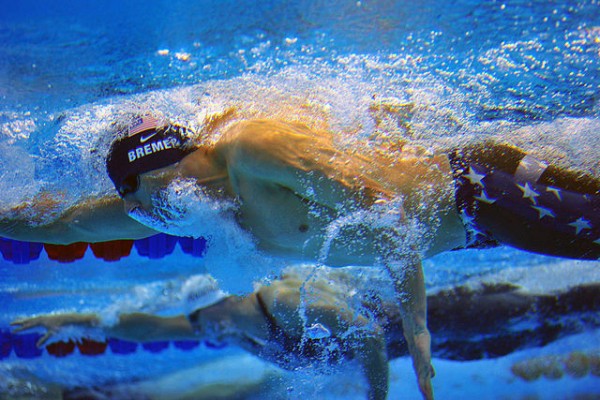Study Finds Biological Clocks Effect Olympic Athletes’ Performance
A team of chronobiologists from the University of Groningen recently found that biological clocks have huge impacts on elite athletes' performance.
The experts concluded after they studied the times that swimmers achieved in four separate Olympic Games. According to the study finding, changing the clock to reach its peak performance at the right time could make a difference between winning and losing. Reports on the study said results were published in the Scientific Reports journal on October 8.
According to the paper's first author, former University of Groningen Ph.D. student, Renske Lok, in many sports, the differences between being in the first or second place, or not getting any medal at all, are so small.
She added, they wondered if the biological clock of an athlete played a role. This clock, Lok continued, determines the daily rhythms of a person's body. Specifically, she explained, "It regulates physiological characteristics," like the temperature of the core body and levels of blood glucose.
Referring to the characteristics, the study's first author also said, "And we know that peak performance" typically accords with the highest in core body temperature.

Photograph of Eli Bremmer swimming in the 200m freestyle portion of Olympic Pentathalon
ALSO READ: 5 Good Things that Happen to Your Body as You Age
Olympic Swimmers Studied
Lok said she decided to examine the said idea by evaluating the times of Olympic swimmers who got to their specific distance and stroke finals. Meaning, she explained, the said athletes "had to swim three rounds," which included the heats, the semi-finals, and the finals.
Reports on the paper said results for both men and women athletes were attained from websites that posted the Games' official results in Athens in 2004, Beijing in 2008, London in 2012, and Rio de Janeiro in 2016.
Of all the games in the Olympics, the study authors said they chose swimming. The external circumstance outside is quite similar to well-regulated water temperature, and hardly any equipment is used.
To dismiss any confusing factors like the sharkskin swimwear specifically worn in Beijing, every participant's results were standardized.
As the research indicated, the mean individual time for all three rounds was computed, and every round was successively compared to the average.
DON'T MISS THIS: 6 Reasons Why You're Gaining Weight Unintentionally
The 'Biological Clock'
This particular study came up with two thought-provoking conclusions. The first conclusion was that swimmers performed best during the finals, while during the heats round, they were always slower compared to the semi-finals.
In the said first conclusion, it meant that the athletes could adapt their respective performances and save their best energies for the final round.
According to Lok, the second conclusion was that the difference between the heats and semi-final rounds was smallest in Beijing, which was quite interesting since, in the other venues, the schedules of heats were in the morning. In contrast, both the semi-final and final rounds were in the evening.
Meanwhile, in Beijing, the heats were in the evening, while the semi-final and final rounds were in the morning or afternoon.
All Rounds Affected by Time of the Day
The study's results suggest that the athletes' performance in all three rounds was affected by the time of day. As a result, Lok and her colleagues utilized a model to remove all biological clocks' variations.
This analysis then led to what the stud authors described as "sinusoid performance pattern" throughout the day. The swimmers' performance, Lok explained, "Was not so good in the morning."
However, they were better in the afternoon, then worse again in the late evening. According to this information, the study authors could predict the fastest times for late afternoon, specifically, a little after 5 p.m.
The scale of the effect was said to be substantial as it went beyond the difference of the time spent between a gold and silver award in about 40 percent of the finals, between silver and bronze medals in more than 60 percent, and between bronze and no medal at all, in roughly 61 percent.
IN CASE YOU MISSED IT: Is Excessive Exercise Linked to Eating Disorders? Here's What Studies Say
Check out more news and information on Exercise Routines on MD News Daily.
Oct 08, 2020 11:43 PM EDT





